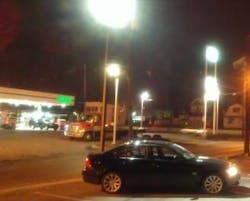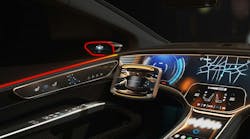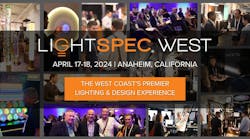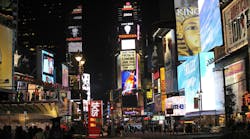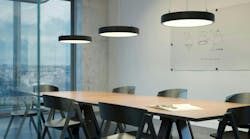In January 2014, Independence LED and Burger King embarked on a project to replace the metal halide (MH) lamps in its parking lots at a restaurant in Elizabeth, New Jersey, which resulted in an annual savings of $904 on eight LED fixtures or 68%. Also in January, two Burger King restaurants in Maple Shade and Carteret, New Jersey, decided to retrofit their 2x4-ft fluorescent troffers with Independence linear tubes in 2x2-ft LED fixtures throughout their facilities, delivering annual energy savings of over $2200 each. Energy cost was reduced by more than 65%. Lifetime energy savings (7 years or 60,000 rated hours) for the restaurant interiors is estimated at $18,000 per facility when maintenance and 3% annual increases in energy costs are factored in.
Parade Enterprises owns 46 Burger King franchises in New Jersey. The franchises operate their parking lot lighting an average of 12 hours per day at a cost of $0.083/kWh. For the eight 400W MH fixtures in Elizabeth, this amounted to more than $1300 per year. Independence LED supplied 145W LED fixtures to replace the 400W fixtures (456W ballasted usage). The LED fixtures are rated for 60,000 hours or 14 years when operated 12 hours per day, 7 days a week. The estimated lifetime energy savings based on the lighting retrofit alone is $12,700 or $18,600 when annual energy cost increases and maintenance costs are included.
The interior lighting upgrades in Maple Shade and Carteret consisted of replacing four T8s in each fluorescent troffer (128W each) with four 12W LED linear tubes -- converting 2x4-ft troffers to 2x2-ft troffers for a 65% energy savings. In the kitchen areas, cool white (5000K) fixtures were used while warmer tubes (4000K) were used in dining areas. Because the restaurants are open 24 hours, 7 days a week, the lifetime energy savings (60,000 hr or 7 years) is $15,000. Lifetime savings is estimated at up to $18,000 when factoring in maintenance and annual increases in energy cost of 3%.
Finally, annual savings at the Carteret facility could be boosted even further if the Independence LED Smart Control drivers are activated. These controls enable automated dimming of the LEDs when natural daylight is present.
Editor's Note: The original article incorrectly stated that the LED fixtures used in this study were manufactured by GE. They were not. The fixtures were provided by lighting manufacturer Independence LED.

